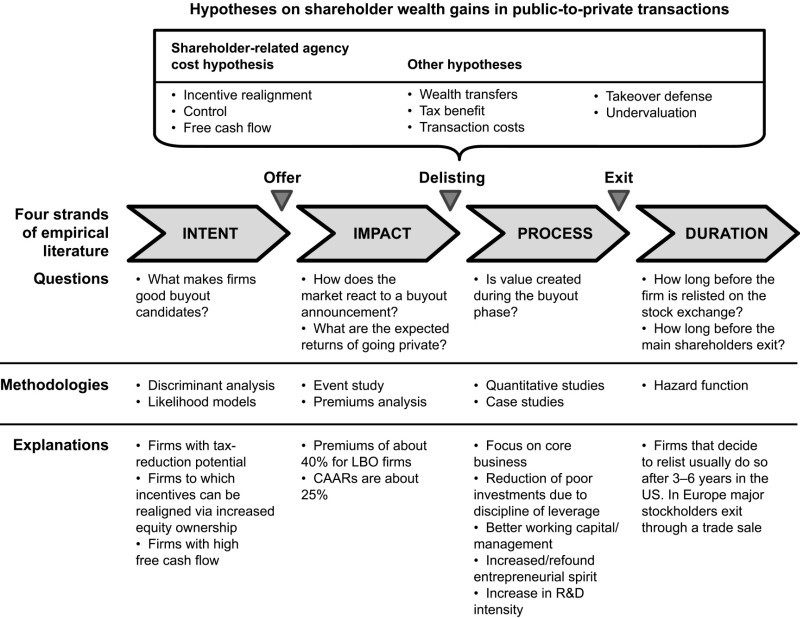Leveraged Buyouts
Post on: 7 Июнь, 2015 No Comment

Leveraged Finance for Private Equity Buyouts | LBOs
Leveraged finance has been a key resource for private equity as many deals use leverage to purchase companies that would otherwise be impossible to acquire. Many of the major private equity deals were financed primarily through debt, with the percentage of leverage sometimes being as high as 90% but typically in the 60-70% range. Leveraged buyouts have been very popular for most of this decade until the global credit crunch which has largely restricted the amount of leverage offered for LBOs.
How Leveraged Buyouts Work
Leveraged finance in private equity has its positives and negatives. Principally, the benefit is that private equity groups can acquire majority shares without first having the necessary capital; the negative is the risk involved in such a deal, financing a deal using a large amount of debt has an inherent risk that the deal will not be successful and the buyer is faced with having to pay off the loan. Often the private equity buyout uses the assets of the company it is acquiring as collateral for obtaining the loan. For this reason, leveraged buyouts (LBOs) have attracted a lot of criticism in the investment community, but these types of deals are still made and often times a successful leveraged buyout provides impressive returns to investors. Below is a graph from a report on leveraged buyouts by the Committee on the Global Financial System that shows how the typical leveraged buyout is structured (its a little fuzzy but hopefully not too hard to read.)
The leveraged buyout firm usually repays the deal sponsors in three to seven years depending on the arrangement, and there are different ways in which the LBO firm repays this debt. Options for repayment include: dividend recapitalization, selling the acquired firm to other private equity firms or alternative buyers, or through an initial public offering (taking the company public through a stock offering). In this decade, there has been a noticeable resurgence in the popularity of leveraged buyouts; global leveraged buyout fund-raising increased from less than $100 billion in 2004 to more than $200 billion in 2007.
Advantages of Leveraged Buyouts
Leveraged buyouts have provided high returns to investors who are open to the element of risk that is present in financing deals through leverage. Beyond the aspect of returns to investors, private equity firms that acquire a controlling interest in a company are often able to improve performance by providing a heightened level of management oversight and improved corporate governance. Private equity investors enjoy greater freedom from SEC regulation than investors in public companies, and they use that freedom to sometimes actively manage the company. The methods by which the private equity backer will improve a company are direct oversight of management by the private investors, using pay-for-performance incentives for managers and addressing structural problems that eat away at profits.
Another benefit for a leveraged buyout of a public company is the reduction in inefficient use of free cash flows. Often managers of public companies that gather large operating profits but are unable to find good investment opportunities will be motivated to dump the money into low-return projects instead of returning the profits to investors. A firm acquired in a leveraged buyout will put that money toward debt repayment. Lastly, firms bought through an LBO tend to focus on the long-term because there is little pressure to provide short-term profits. Many view this as a benefit of leveraged buyouts because it allows for structural changes and long-term profit producing changes.
Leveraged Buyouts in a Bad Market
The mortgage meltdown has made leveraged buyouts very difficult as they rely on sizable loans which the investment banks are not as willing to offer now. The banks tightening the purse-strings has forced buyout firms to either scale back the size of their investments or seek other sources of capital. While leaders of top private equity like Steve Schwarzman and David Rubenstein have been optimistic this week over the return of leveraged buyouts, Bloomberg reports Announced transactions by leveraged buyout firms have dropped more than 70 percent so far in 2008 from the same period a year earlier. Private equity firms hope that the injection of capital back into the banking system by the federal government will help solve some of the illiquidity in the market and revamp leveraged buyouts.
Tags: Leveraged buyouts, LBOs, LBO, Leveraged buyout definition, leveraged buyout, what is a leveraged buyout, benefits of leveraged buyouts, leveraged finance, What is an LBO. Private Equity leveraged buyout, Leveraged buyouts news














